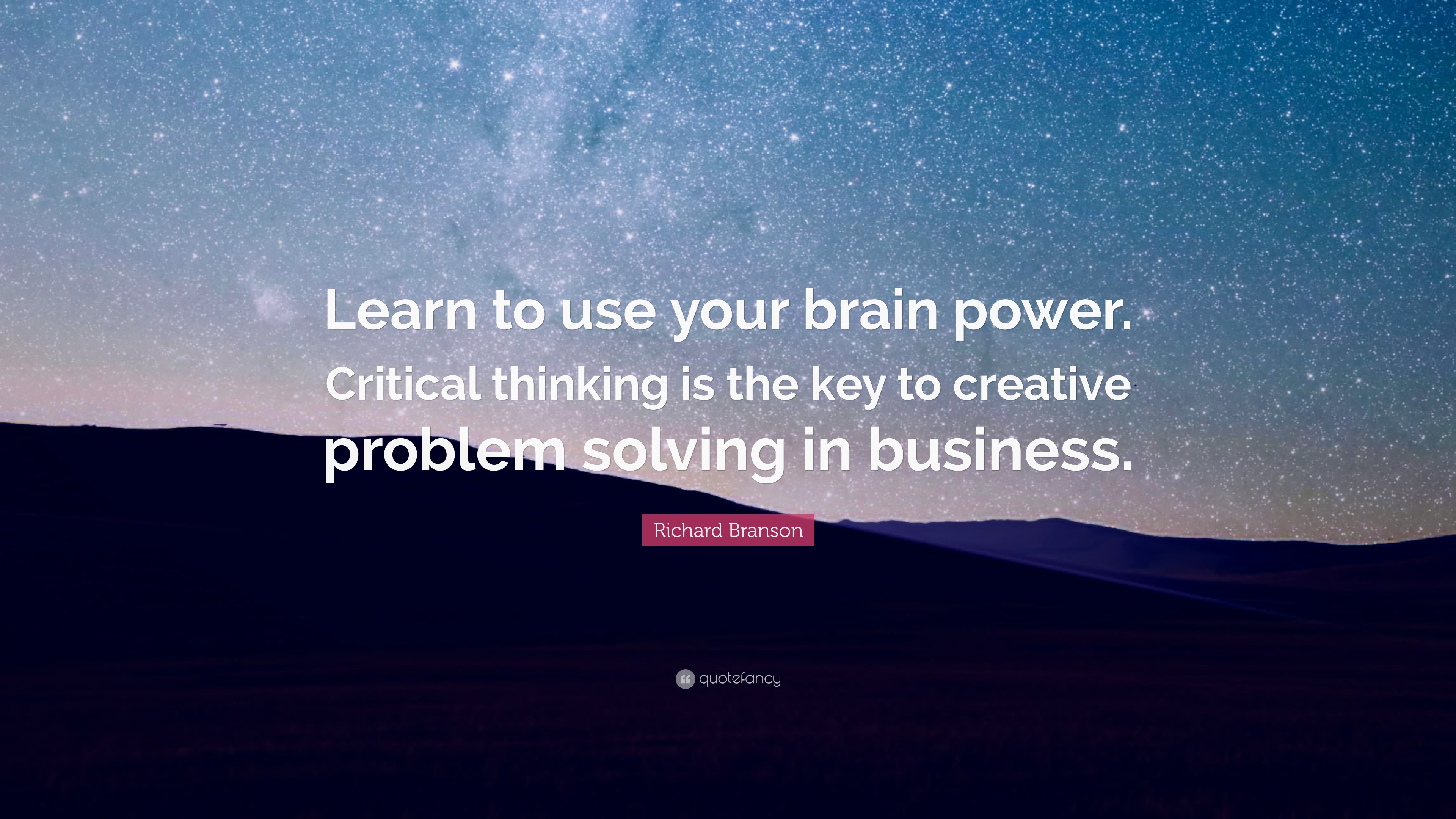Link the Dots: Critical Thinking Skills regarding Effective Learning
Critical thinking is definitely an essential skill for individuals as they get around their educational voyage and prepare regarding the complexities of the real entire world. In an age where information is abundant and readily available, the ability to analyze, examine, and apply expertise is more important than ever. Strong essential thinkers not just excel academically but in addition create the confidence and independence necessary for efficient decision-making. This post will check out the essential crucial thinking skills every student needs, how you can identify these expertise in their classroom, and the traits that characterize effective student crucial thinkers.
As educators, spotting and nurturing essential thinking abilities throughout students can have a deep impact on their very own success. From spotting logical reasoning to evaluating problem-solving skills, understanding these factors can assist guide educational strategies. By fostering a setting that promotes curiosity, questioning, plus open discussion, we can cultivate a new classroom culture wherever critical thinking grows. In https://click4r.com/posts/g/19586329/transforming-education-the-essential-role-of-critical-thinking-skills , we can delve deeper into the key qualities of strong important thinkers and how these types of skills can be developed and considered throughout a student's learning experience.
Essential Critical Thinking Skills
Critical thinking is a vital skill for every pupil, enabling them to be able to analyze information, examine arguments, and help make reasoned decisions. From its core, crucial thinking involves a chance to question and measure the validity of details. This process encourages learners to check beyond surface-level details and seek out deeper understanding, fostering an environment where curiosity and analytical abilities can thrive. Students who cultivate these kinds of abilities are much better prepared to tackle sophisticated problems, whether in academic settings or perhaps in real-world scenarios.
One particular of the necessary components of essential thinking is the particular ability to separate between objective information and subjective opinions. Students must figure out how to identify reliable causes of information and detect biases that may well influence their understanding. By honing this specific skill, they can engage in discussions and debates having a more informed point of view. This not just enriches their unique knowledge but also boosts their ability to be able to communicate ideas efficiently to others, an attribute that is invaluable in both academics and professional contexts.
In addition, strong critical thinkers are adept at asking the proper concerns. They don't merely accept information with face value; they will delve deeper, in search of to understand typically the underlying assumptions and implications. This curious mindset not only leads to a new deeper comprehension of subjects but likewise fosters resilience on problem-solving. By motivating https://postheaven.net/babiesjam6/empowered-learners-developing-fundamental-critical-thinking-skills to adopt skepticism and problem conventional wisdom, we allow those to develop some sort of robust framework intended for evaluating information, making sound decisions, plus navigating the difficulties of the entire world surrounding them.
Identifying Strong Critical Thinkers
Identifying strong important thinkers in the particular classroom requires enthusiastic observation of specific behaviors and attributes. this hyperlink exhibit curiosity plus a willingness to explore complex questions. These people engage deeply together with material, often wondering clarifying questions that indicate a need to understand ideas rather than merely memorize facts. Any time presented with brand new information, they remain skeptical, evaluating sources and considering a number of viewpoints before building conclusions.
Another key attribute of effective crucial thinkers is their own proficiency in analyzing arguments. These learners can distinguish between logical reasoning and even emotional appeals, enabling them to construct sound arguments dependent on evidence. That they recognize logical myths and are adept at deconstructing flawed reasoning, which showcases their ability to think analytically. In conversations, they display exceptional communication skills, articulating their thoughts obviously and constructively difficult the ideas of others.
Moreover, strong essential thinkers demonstrate the ability to suspect independently. They will be not easily influenced by popular thoughts and opinions and can discern their own biases, showing a determination to objective analysis. Their decision-making skills reflect a considerate evaluation of options and consequences. Simply by actively playing debates and discussions, these people further enhance their critical thinking capabilities, continuously refining their thought processes through conversation with peers.
Developing Critical Thinking in Students

Cultivating critical thinking expertise in students is definitely essential for their academic and personal growth. One effective approach is always to generate an environment where questioning is prompted. When students feel comfortable asking queries and challenging suggestions, it fosters a new culture of interest and open-mindedness. Teachers can facilitate discussion posts that explore diverse perspectives, prompting pupils to articulate their very own thoughts and provide data to support their own viewpoints. This exercise not only increases their reasoning skills but also builds their own confidence in articulating opinions.
Another key technique for developing important thinking is through engaging activities that will require analysis plus evaluation. Projects that involve problem-solving, argument, or case scientific studies enable students to make use of logic and purpose in real-world scenarios. By analyzing various sources of data and weighing diverse arguments, students learn to differentiate among facts and thoughts. This hands-on knowledge helps them discover biases, recognize logical fallacies, and improve their capability to help to make informed decisions. Such activities can furthermore spark interest found in subjects that may on the other hand seem tedious.
Finally, representation and self-assessment carry out a crucial function in nurturing critical thinkers. Encouraging college students to evaluate their very own own thought techniques and decisions encourages metacognition, which is typically the awareness of one's own thinking. A ponderer practices, such while journaling or class discussions, allow learners to consider precisely what they have learned and even how they might boost their reasoning skills. By regularly showing on their considered patterns, students may develop a more powerful foundation in critical thinking, ultimately preparing them for success in both academic uses and real-world challenges.